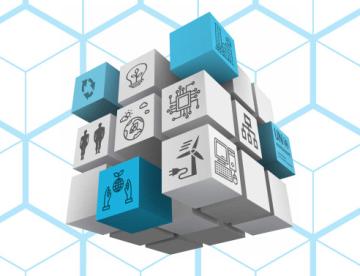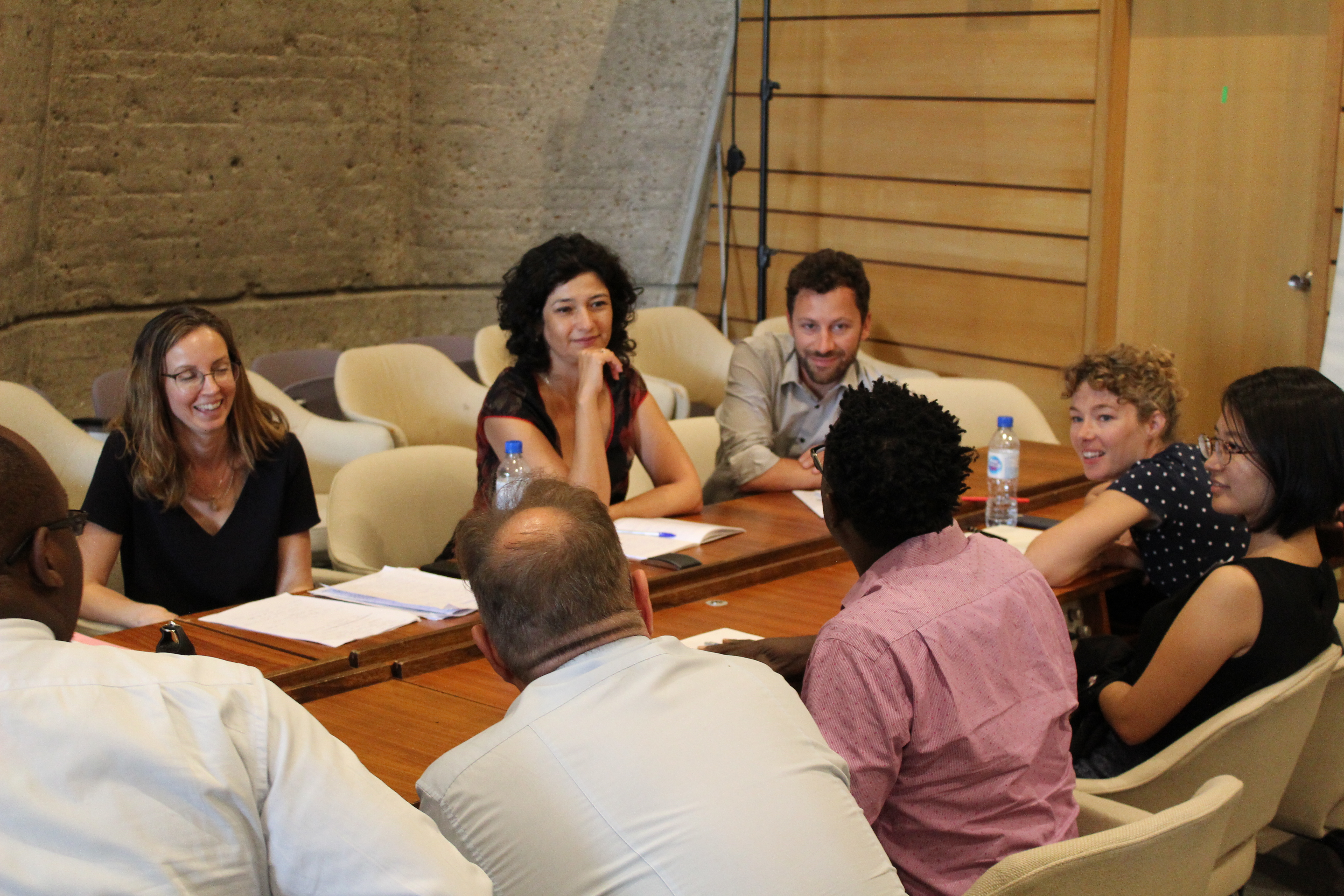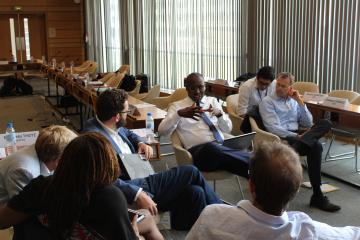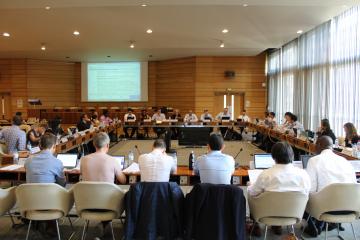
There has recently been a lot of buzz about how blockchain technology can support environmental and social sustainability.
On 23-24 July 2018, UN Environment and the Green Growth Knowledge Platform (GGKP) held a dialogue on Exploring Blockchain Technology and Environmental Sustainability to examine existing and potential applications of blockchain technology to help create a greener and fairer global economy.

Over 60 representatives from governments, businesses and start-ups, think tanks, consulting firms, and non-profit and international organizations came together for a frank and open discussion about how blockchains can support sustainability.
The emerging consensus is that blockchains – if harnessed correctly – can lead to greener supply chains, smarter energy systems, financial inclusion through peer-to-peer transactions, and better management of natural capital.
First things first: What is blockchain technology?
Blockchain is a digital transaction technology that enables secure transactions within peer-to-peer networks. These transactions take place independently of a central authority, such as a bank, or a third party intermediary, such as a trading platform. Each transaction is witnessed and verified by other participants in the network. Once verified, transactions are time-stamped and permanently recorded in a publicly-accessible, unalterable digital ledger – the blockchain. Every computer or “node” on the network has a copy of the blockchain.
How can blockchain be used in the context of sustainability?
Blockchain technologies are already being tested and applied across a range of sectors and industries around the world to achieve environmental and social sustainability goals. A few examples:
- LO3’s “TransActive Grid” allows neighbours to buy and sell power from each other on a blockchain platform that tracks and verifies microgrid transactions;
- GRID+ software offers residential consumers direct access to deregulated energy markets, enabling them to buy electricity at near-wholesale prices, to advance purchase energy – often at lower or less volatile prices than market prices – or to make real-time payments for their electricity consumption;
- Provenance uses blockchain technology to track resources and materials along entire value chains, including the Indonesian fishing industry (see From shore to plate: Tracking tuna on the blockchain); and
- Stockholm Green Digital Finance helps scale green investments by making it possible for investors to verify and monitor their green investments using blockchains.
What are the associated risks?
One of the main concerns associated with the use of blockchain technologies is the large energy consumption required to verify transactions and produce new blocks to the chain through a process known as “mining”. Given this concern, there are efforts underway to reduce the energy consumption, including some efforts to mine with clean energy and alternative approaches to verifying transactions.

Experts at the Dialogue noted that it was important to compare the energy consumption risks associated with the use of blockchains with the energy consumption associated with the same activity not using blockchains (e.g., conventional banking versus cryptocurrency).
There are also a number of policy and regulatory questions, including whether to change existing laws to facilitate the use of decentralized models, how to develop adequate legal frameworks and standards for governing blockchain technology, and how the blockchain community can ensure compliance with existing data security and privacy laws.
Blockchain and UN Environment
The UN is already engaging in the emerging blockchain revolution.
UN Environment and ANT Financial Services recently launched the Sustainable Digital Finance Alliance to promote the use of digital technologies in catalysing financing for sustainable development, and the UN Climate Change Secretariat fostered the development of the Climate Chain Coalition, whose members have agreed to a set of principles supporting the application of blockchain technology for addressing climate change.
Bringing stakeholders together to address risk and opportunity
At the Dialogue, a number of recommendations were made about how UN Environment could further contribute to the development and application of blockchain technology. The most concrete of these recommendations was focused on using the convening power of UN Environment to draw together various stakeholders, such as governments, local communities, NGOs, think tanks, and blockchain experts to identify key environmental challenges and develop potential blockchain use cases for addressing these challenges.
Details of the dialogue
On 23-24 July 2018, UN Environment and the GGKP brought together over 60 representatives from governments, businesses and start-ups, think tanks, consulting firms, and non-profit and international organizations came together on 23-24 July 2018 for a technology dialogue on "Exploring Blockchain Technology and Environmental Sustainability" at the UNESCO Paris Headquarters.

The objective of the Dialogue was to learn from existing best practices, identify new opportunities, flag possible concerns, and improve the collective understanding of blockchains and how they can best be applied in environmental or sustainability areas such as inclusive finance, smart energy systems, sustainable value chains, and climate change mitigation.
Experts agreed that blockchain technologies seem particularly effective in applications that require trust between parties or building networks without traditional intermediaries. Their potential value is most evident in the context of sustainable value chains, smart energy systems, inclusive and green finance and improved environmental monitoring, reporting and verification.
The most exciting thing about blockchain, experts noted, is perhaps not the technology itself but rather the fact that it is forcing people to think differently about how to tackle long-standing challenges. Blockchains are one potential technology to address these challenges that can be used in concert with other technologies, such as the internet of things (IoTs), mobile and big data, machine learning, and artificial intelligence.
Photo coverage of the dialogue is available here.
